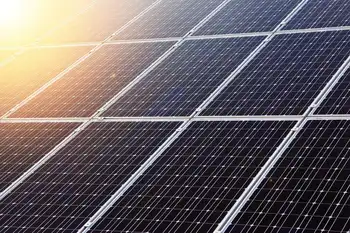New Electricity Act introduced in New Brunswick
By
Protective Relay Training - Basic
Our customized live online or in‑person group training can be delivered to your staff at your location.

- Live Online
- 12 hours Instructor-led
- Group Training Available
The act, introduced by Energy and Mines Minister Craig Leonard, will re-integrate the NB Power group of companies into one main company and one subsidiary, as opposed to seven separate companies. Also, the New Brunswick System Operator and the New Brunswick Electric Finance Corporation will be amalgamated into the new, vertically-integrated Crown utility to be called New Brunswick Power Corporation.
The changes come following the release of the New Brunswick Energy Blueprint in late 2011, which set out a 10-year energy policy and 3-year energy action plan for the province. Key principles of the blueprint are low and stable energy prices, energy security, reliability of the electrical system, environmental responsibility, and effective regulation.
All five of these key principles are reflected in the new Electricity Act.
“We are pleased to move forward with the re-integration of NB Power,” said Leonard. “Not only does it make good business sense, but other changes we are bringing forward will help to strengthen the utility's management and board of directors, require greater transparency at the utility and allow NB Power to pay down debt and operate like a business.”
The entire NB Power organization will be subject to regulatory review and scrutiny by the New Brunswick Energy and Utilities Board EUB. Today only two of the seven NB Power companies are subject to review.
The new act will grant NB Power the exclusive right to sell electricity to customers in New Brunswick, with the exception of customers served by the municipal utilities in Edmundston, Perth-Andover and Saint John.
NB Power will also be granted the exclusive right to build new transmission lines in the province. However, it will be permitted to do so via partnerships or joint ventures with other companies in order to share project costs and risk.
As part of a series of new objectives outlined in the act, a merit-based process for recruiting and selecting candidates for NB Power's board of directors, as well as for the president and chief executive officer, will be introduced.
NB Power will no longer be permitted to increase rates up to three per cent with no hearing. Instead, the utility will be required to defend its rates before the EUB every year, regardless of the amount of increase.
The provincial government will no longer have the authority to override an EUB rate decision, giving the board final authority over electricity rates.
In addition, NB Power will be required to develop a long-term Integrated Resource Plan every three years, as well as a medium-term business plan annually with projections of electricity rates and capital expenditures over the 10 years covered by the plan.
The new act enshrines in legislation the government's policy objectives of permitting NB Power to achieve a capital structure of 20 percent equity by paying off $1 billion in debt requiring NB Power to operate its facilities in the most efficient manner possible and, to the extent practicable, maintaining electricity rates as low as possible and stable from year to year.
As a transitional measure, the act allows NB Power to increase electricity rates up to a maximum of two per cent on Oct. 1, 2013 and again on Oct. 1, 2014, if required, while the new re-integrated utility prepares for a number of regulatory matters with the EUB that result from the restructuring. Beginning in fiscal year 2015-16, rates will be set by the EUB every year.
Given the government's three-year rate freeze, which comes to an end on Sept. 30, the modest rate increases in 2013 and 2014 will help NB Power achieve the financial and debt reduction targets mandated by the government. This is intended to ensure the long-term financial health and sustainability of the Crown utility.
“After the three-year rate freeze we are pleased that NB Power is able to stay on track to meet its debt reduction target with reasonable increases of no more than two per cent per year over the next two years,” said Leonard. “NB Power has been able to reduce costs significantly while continuing to offer safe and reliable service to New Brunswickers.”











